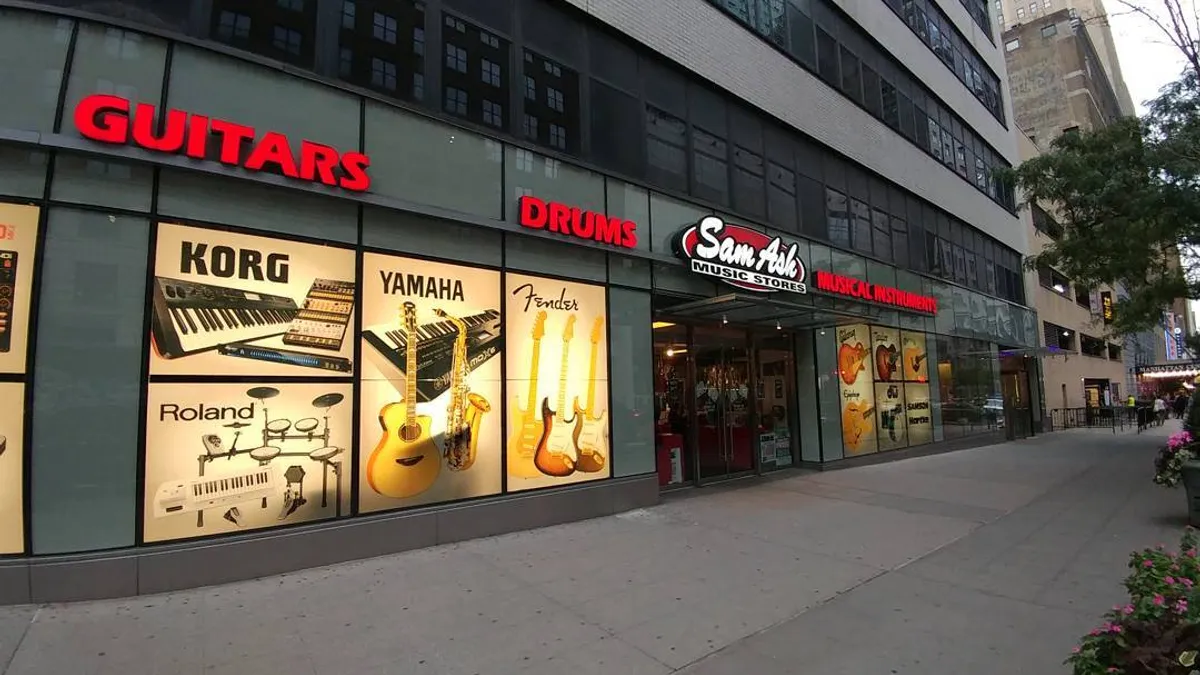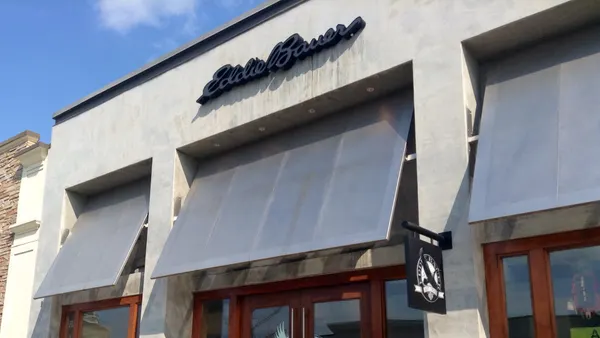Sam Ash Music filed for Chapter 11 on Wednesday in bankruptcy court in New Jersey.
The move follows the company’s decision last week to close all of its 42 retail stores in 16 states after 100 years of operation. Tiger Group and Gordon Brothers are handling the closing sales.
The retailer is evaluating a potential sale of its e-commerce operations, related intellectual property and its wholesale Samson business as a go-forward strategy.
“Unfortunately, in today's post-Covid environment, the challenges to our brick-and-mortar business have necessitated a restructuring,” David Ash, CEO of the New York-based privately owned company, said in a statement Thursday. “We are exploring a number of strategic options in conjunction with these inventory sales. We believe that a restructuring of our liabilities and a potential sale of the business or portions of the business is the best path forward to unlock and maximize value for the benefit of the company's stakeholders.”
Before filing for Chapter 11, Sam Ash had less than $1 million in available cash and its loan advances exceeded its borrowing base, Chief Restructuring Officer Jordan Meyers said in court documents. Sam Ash is seeking court approval for $20 million of debtor-in-possession financing. The musical instrument retailer also said in court documents that it has already negotiated terms with its lender to submit a stalking horse bid for most of its assets.
“Given the Debtors’ liquidity challenges, among other factors, leading up to the commencement of the Chapter 11 Cases, the stalking horse bid sets a rational baseline for a competitive bidding process,” Meyers said in court documents.
Sam Ash “has been heavily dependent on in-store traffic," according to additional court documents. Furthermore, store visits were eliminated due to the pandemic, the retailer had too many locations and revenue declined over the last five years, per the company.
Due to declining retail operations and insufficient liquidity, the company did not pay rent for most of its stores for April or May. It also curtailed payments to most of its vendors. As a result, some vendors withheld deliveries or required delivery on cash or short payment terms. Others withheld all shipments until past due bills were paid. “The inability to receive a continuous flow of inventory negatively impacted store sales and e-commerce,” Meyers said.
Sam Ash’s liabilities and assets each range between $100 million and $500 million. The debts include $1.9 million to Yamaha Corporation of America; about $946,000 to a Chicago-based security systems company and nearly $800,000 to Hoshino USA, the manufacturer and distributor of Ibanez guitars and Tama drums.
David Ash’s grandparents, Sam Ashkynase and Rose Dinin, opened a music store in New York City in 1924. Sam Ash has been a family-owned and operated company since its inception.
The company's store closing announcement started an outpouring of sentimental comments on social media pages last week.















